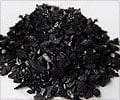New observational study finds a drop in sleep efficiency for high exposures to environmental factors such as air pollution, carbon dioxide, heat, and noise.

‘A quickly changing environment due to growing urbanization and climate change seems to have made it harder to get a good night's sleep.’





For each of the environmental variables measured, the researchers compared sleep efficiency during exposures to the highest 20 percent of levels versus the lowest 20 percent of levels.Poor Sleep Habits Directly Linked to Environmental Pollutants
Through this analysis, they found that high noise was associated with a 4.7 percent decline in sleep efficiency compared to low noise, high carbon dioxide with a 4.0 percent decline compared to low levels, high temperature with a 3.4 percent decline compared to low temperature, and high PM2.5 with a 3.2 percent decline compared to low PM2.5.Two other sleep environment variables, relative humidity, and barometric pressure appeared to have no significant association with sleep efficiency among the participants.
Interestingly, only bedroom humidity was associated with sleep outcomes assessed with questionnaires, such that higher humidity was associated with lower self-reported sleep quality and more daytime sleepiness.
This suggests that studies based on questionnaires may miss important associations readily detected by objective measures of sleep. This is not surprising as humans are unconscious and unaware of themselves and their surroundings during large portions of their sleep period.
Also, most study participants rated humidity, temperature, and noise levels in the bedroom as “just right” regardless of the actual exposure levels.
Advertisement
This suggests that more research is needed now on interventions that could improve sleep efficiency by reducing exposure to these sleep-disrupting factors.
Advertisement
Source-Eurekalert















